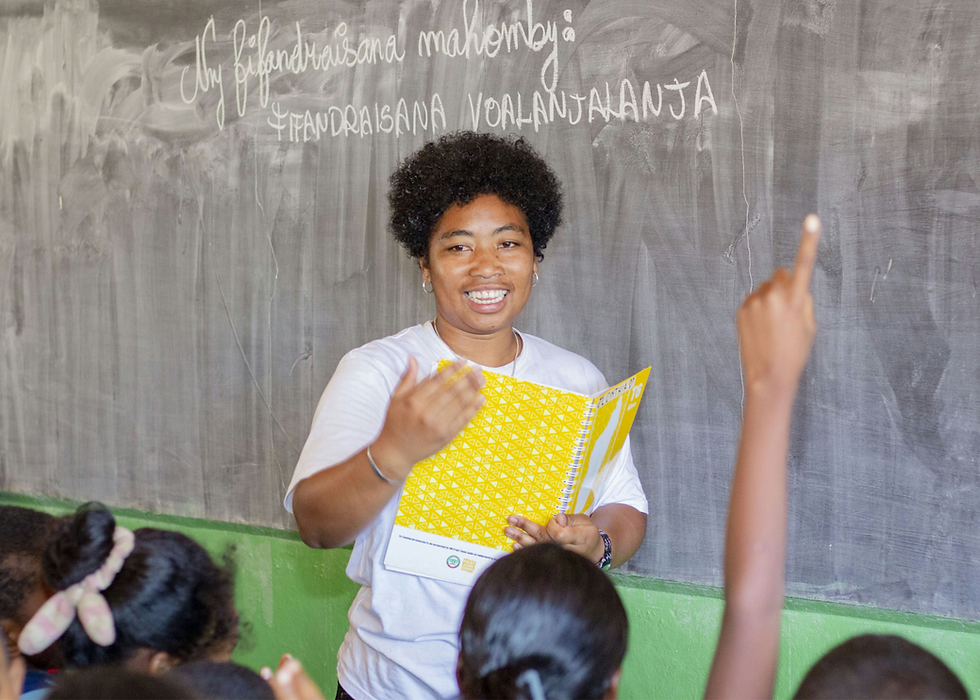3 ways we promote literacy in a sex ed program
- Laura Leeson

- Sep 8, 2021
- 2 min read
Updated: Oct 23, 2021
Comprehensive sexuality education (or, “sex ed”) is an evidence-based mechanism that equips young people with an understanding of their sexual-reproductive health and the tools needed for healthy relationships.
But when done right, "sex ed" also promotes another fundamental part of education: literacy.
Literacy is a critical life skill that enables people to demand their rights and lead healthy and productive lives. Yet, in many parts of the world, meaningful literacy learning opportunities are limited. Madagascar is one extreme example: 97% of Malagasy children cannot read and understand a simple story by the end of primary school. [i]
Sex ed can help. To celebrate this year’s International Literacy Day, we are sharing three ways literacy is interwoven into our work in sexuality education.
1) Participatory pedagogy
Lecture-based teaching and rote memorization are still the norm in Madagascar. Yet, participatory and student-centered pedagogy – which helps learners practice and internalize curriculum content – is essential for quality sexuality education. It also promotes literacy.
Projet Jeune Leader’s weekly courses are often students’ first exposure to participatory learning. Whether it is discussing short case studies in groups, synthesizing their ideas to present on a flipchart, or raising their hand to ask and answer questions – our participatory sexuality education boosts literacy alongside other essential knowledge and skills.


2) Enrichment programming
Projet Jeune Leader’s educators use their full-time positions in school not only to teach, but also to offer fun extracurricular enrichment activities for students. Students’ most requested activity? Reading.
Students’ desire for books is no surprise when only 3% of children in rural Madagascar own three books, and less than one-quarter read books at home. [ii] With a backpack full of rotating books, our educators provide students access to a library for the first time.
Projet Jeune Leader's culturally-relevant and youth-friendly magazines also fill a gap in literacy-building resources in Madagascar – especially those that cover essential life topics in the Malagasy language. The magazines (called “VINA”, for Voices, Initiatives, Action) are designed with and for Malagasy youth. And with themes like, ‘Managing emotions in a healthy way’, ‘Positive masculinity’, ‘Menstrual health and hygiene’, and ‘Getting help and support from trusted adults’, it is no wonder that students love reading them.


3) Engaged educators
Our educators are near-peer mentors – adults that are young enough to be relatable to youth, but old enough to be seen as role models. Therefore, students feel comfortable seeking help or asking advice from educators through one-on-one counseling.
While students do bring questions and concerns about sexual health to their Projet Jeune Leader educators, the most common request (by far!) is for help with their studies.
Even though the school system is not well-organized to support students’ literacy learning, our caring, dedicated, and warm educators use their positions to tutor and coach students to keep them on track and in school.
Literacy-promoting sexuality education is one powerful way to ensure young people have the capabilities to lead the lives they want and value.





